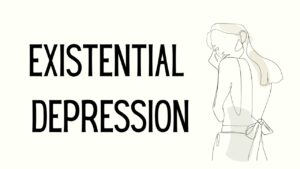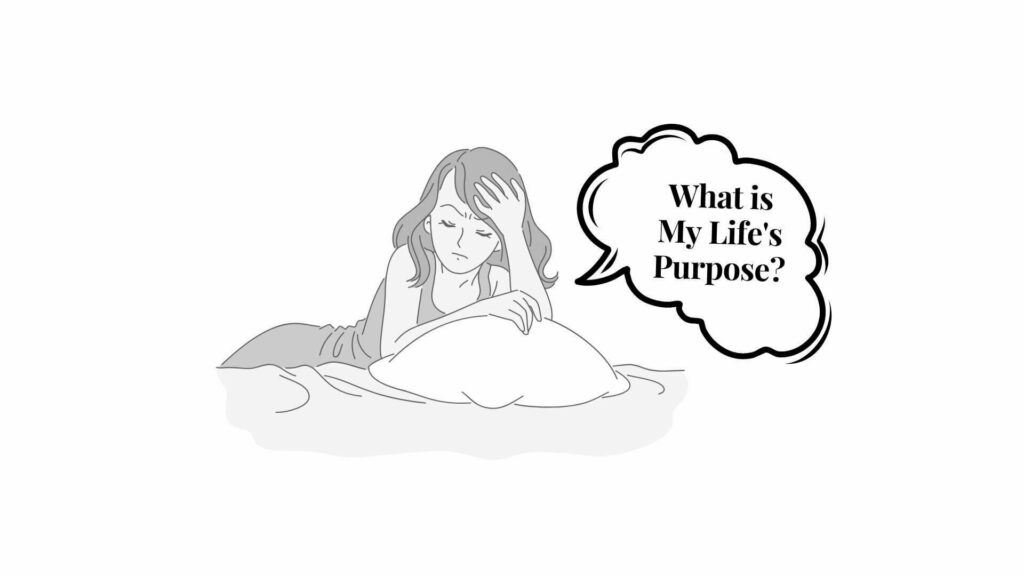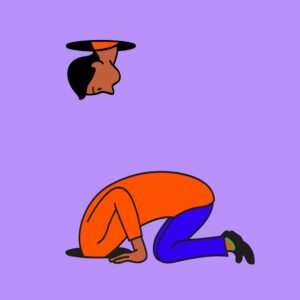If you’re feeling lost, hopeless, and just plain down in the dumps, there’s a good chance you’re suffering from existential depression. Existential depression is a real thing that affects millions of people around the world, and it can be incredibly hard to get through. In this article, we’ll provide you with all the information you need to know about this mood disorder, from its symptoms to treatments. So if you’re feeling like your life is spiraling out of control, read on for help!
Contents
What is Existential Depression?

Existential depression is a kind of depression that is caused by a loss of meaning in one’s life. It can be very difficult to cope with, and it can lead to feelings of loneliness, hopelessness, and helplessness. There is no single cause of existential depression, but it may be related to factors such as a traumatic experience, chronic stress, or a loss of self-confidence.
Existential depression can be very difficult to treat, but it is usually manageable with medication and therapy. If you are experiencing symptoms of existential depression, please talk to your doctor about how you can get help. Many things may help, including self-care strategies, support groups, and therapy.
Different Types of Existential Depression
Existential depression is a very serious form of depression that can affect anyone at any time. It can be extremely hard to diagnose and treat, but with the right help, it can be overcome.
There are three main types of existential depression: catastrophic, nihilistic, and existential-humanistic. Each type has its unique symptoms and causes. If you’re experiencing any of the following signs and symptoms, talk to your doctor immediately. These are some types:
Catastrophic Existential Depression
One of the most common types of existential depression is catastrophic existential depression. This is when you feel like your life is hopeless and there’s no point in trying to fight anymore. You may feel like you’re going to die soon, or that you’ll never be happy or successful again. You may also have a severe loss of interest in life and a feeling of emptiness. In this type, there are usually no positive symptoms, just a feeling of overall despair.
Nihilistic Existential Depression
Nihilistic existential depression is when you feel like life is pointless and there’s no point in trying to do anything. You may feel like there’s nothing good in the world, or that everything is wrong. You may also have a lack of interest in anything and a feeling of emptiness. In this type, there are usually some negative symptoms, such as a decrease in motivation, energy, and pleasure. Sometimes you may also have suicidal thoughts or feelings.
Existential-Humanistic Depression
Existential-humanistic depression is when you feel like life is meaningless and there’s no point in trying to do anything. You may feel like you’re not good enough, or that you don’t belong anywhere. You may also have a feeling of numbness or detachment from the world. In this type, there are usually some negative symptoms as well, such as a decrease in interest in activities you used to enjoy or feelings of guilt or failure.
Signs of Existential Depression

Existential depression is a mental disorder that can affect anyone at any time. It’s characterized by a pervasive feeling of sadness and emptiness, as well as a sense that one’s life has no meaning. This blog will provide you with comprehensive information on signs of existential depression, as well as advice on how to overcome it.
If you are experiencing any of the following symptoms, please speak to your doctor or therapist:
Low energy and fatigue
One of the most common signs of existential depression is a feeling of low energy and fatigue. This can make it difficult to get out and do things, as well as make it difficult to concentrate and think clearly.
Feelings of hopelessness and helplessness
Another common sign of existential depression is feelings of hopelessness and helplessness. This can make it difficult to see any hope for the future or to take any positive steps towards improving your life.
Loss of interest in activities you used to enjoy
If you used to enjoy activities such as going out with friends or spending time reading, but now find that you don’t have any interest in these things, this may be a sign of existential depression.
Changes in eating habits or weight gain/loss
Weight changes can be an early sign that someone is experiencing existential depression. If you are finding it difficult to eat normally or lose weight, this may be a sign that you are feeling depressed.
Insomnia or hypersomnia
Sometimes people who are experiencing existential depression find that they are unable to get a good night’s sleep. This can make it difficult to function during the day, as well as make you feel tired and irritable.
Changes in mood or personality
If you suddenly start to become irritable or aggressive, this may be a sign of existential depression. Alternatively, if you start to withdraw from friends and family, this may also be a sign of depression.
Recurrent thoughts of suicide or death
Sometimes people who are experiencing existential depression find that they have recurrent thoughts of suicide or death. If you are experiencing these thoughts, please speak to your doctor or therapist.
increased alcohol or drug abuse
An increase in alcohol or drug abuse may be a sign that you are feeling depressed. If you are struggling to stop using these substances, this may be a sign that you are not handling the stress of your depression well.
Reasons For Existential Depression

The major reasons for existential depression are:
1) Feeling that life has no meaning or purpose: One of the most common reasons for feeling depressed is feeling that life has no meaning or purpose. This can be due to a wide range of factors, including chronic pain, loss of a loved one, or poor physical health.
2) Feeling isolated and alone: Feeling isolated and alone can also be a major contributor to existential depression. People who feel this way may find it difficult to connect with others, especially if they’re struggling with feelings of depression or anxiety.
3) Experiencing low self-esteem: Low self-esteem can be another major factor in feeling depressed, especially if the person has struggled with feelings of worthlessness in the past. If you’re experiencing existential depression, make sure to seek out counseling and therapy to help address these issues head-on.
4) Lack of hope: One of the most common symptoms of existential depression is a lack of hope. This can be caused by anything from feeling hopeless about the future to face insurmountable challenges in life. If you’re struggling with existential depression, it may help to talk about your concerns with a therapist or counselor.
5) Unrealistic expectations of the future: Another common cause of feeling depression is unrealistic expectations of the future. This can be due to negative past experiences or general pessimism about the world. If you’re experiencing existential depression, it may help to focus on creating positive goals for your future instead of focusing on the negative aspects of life.
6) Having a difficult time accepting change: Many people struggle with feeling depressed when change is introduced into their lives. This can include anything from a new job, relationship, or physical health issues.
How To Deal With Existential Depression?
Existential depression is a serious mental illness that can be extremely difficult to treat. If you are suffering from existential depression, there are many things you can do to help improve your condition. This comprehensive guide will teach you how to deal with existential depression in the best way possible.
If you are experiencing existential depression, there are a few things you should do right away.
Some of these are;
Try to get some rest. If you are struggling to cope with your depression, you may find that sleep is difficult to obtain. Try to get as much sleep as possible, and make sure that you are taking regular breaks during the day.
Identify your triggers. Some things that can cause existential depression are; losing someone close to you, feeling overwhelmed or hopeless, experiencing a personal crisis or trauma, or feeling like you have no control over your life. Trying to identify what specific things trigger your depression can help you to manage it more effectively.
Talk to someone. If you feel like talking is not an option for you, there are many support groups available that can offer help. Talking about your experiences with others can often provide reassurance and support.
Try medication if appropriate. If medication is necessary for you to manage your depression, be sure to discuss this with your doctor beforehand. There are a variety of medications that can be used to treat existential depression, so finding the right one for you may take some time.
If all of these measures fail, consider seeking professional help. Many therapists specialize in treating existential depression, and they may be able to provide you with the help that you need.
Conclusion
Existential depression is a highly debilitating form of depression that is marked by an overwhelming sense of meaninglessness or despair. If you are experiencing symptoms that fit this description, please know that there is help available. In this comprehensive guide, we will discuss the different aspects of existential depression and outline the various steps you can take to seek treatment. We hope that this guide will help you find relief from your depressive symptoms and increase your chances of reaching a successful outcome.
Hope this article was of help to you! If you are suffering from mental health disorders, you may seek help from Therapy Mantra. We have a team of highly trained and experienced therapists who can provide you with the tools and skills necessary for overcoming mental health disorders. Contact us today to schedule an online therapy or download our free Android or iOS app for more information.


